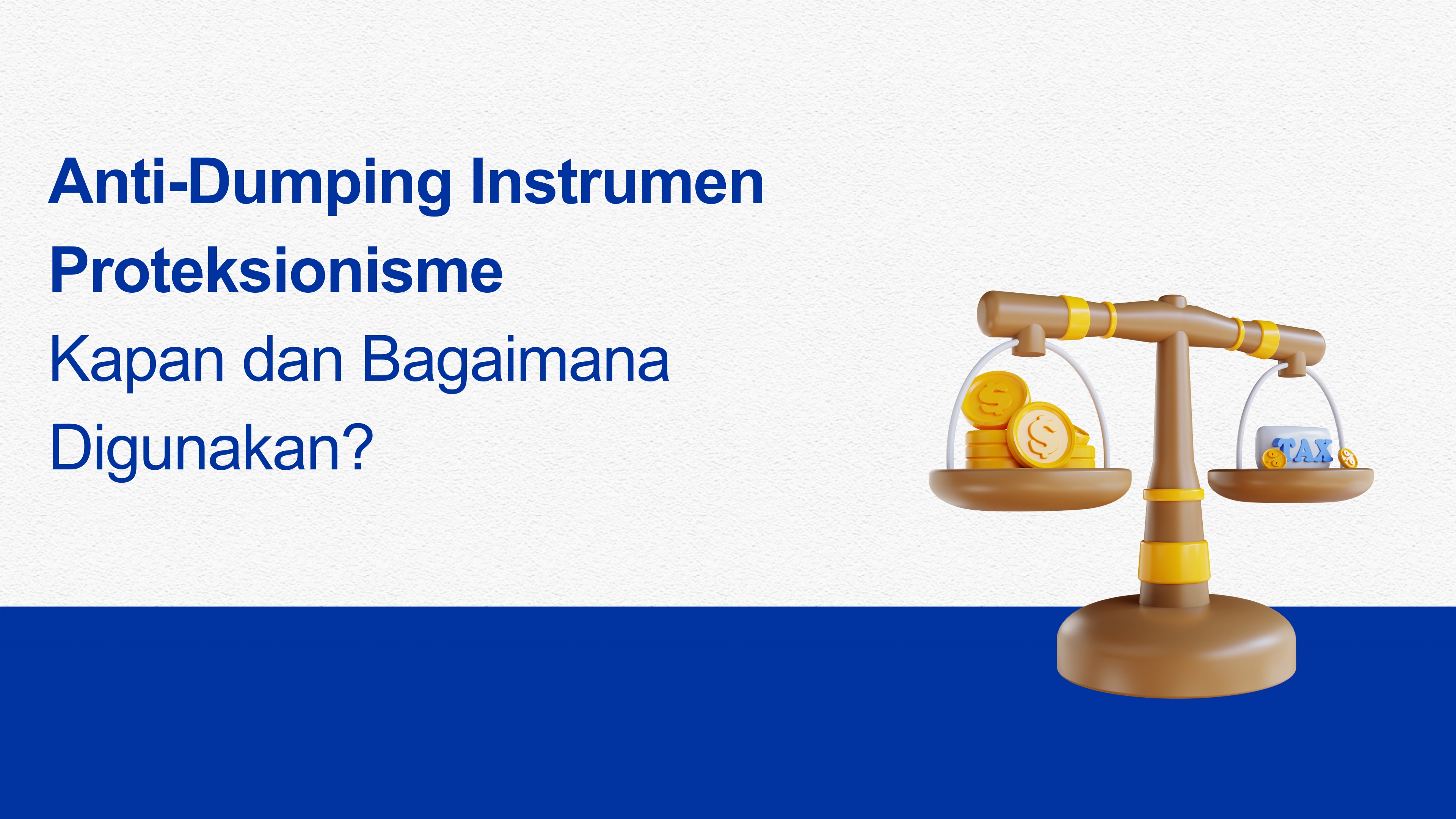Anti-Dumping as an Instrument of Protectionism: When and How is it Used?

With the focus on Indonesia as the epicentre of industrial development and commercialisation, the Indonesian market is one of the prime targets for many foreign markets that have begun to enter, especially after the completion of the COVID 19 pandemic. Of course, this is related to the consumerism culture of the younger generation (Generation Z) who have a mindset of gratification and impulsive spending in the context of "self reward". Several foreign industries began to dominate market distribution such as entertainment to technology, often encouraging the supply of imported goods into the country quickly.
In terms of domestic economic growth, this will significantly affect Indonesia's market share and economic development. Therefore, the question is what instruments can be applied by Indonesia as a form of its market protection strategy? One of the ways that Indonesia is implementing is the imposition of excise taxes on several business and industrial sectors called Anti-Dumping.
In contrast to the concept of dumping, which focuses on selling cheap imported goods from foreign countries in cross-border trade and then reducing the interest in buying domestic products and increasing economic inflation due to low public purchases of domestic products, anti-dumping is an action taken by the government to protect domestic industries from dumping practices by foreign companies. Anti-dumping stabilises the economy by imposing tax duties on several industrial sectors entering Indonesia.
According to Economist from the Institute for Development of Economics and Finance (INDEF), Imaduddin Abdullah, the implementation of Anti Dumping rules still has the potential to disrupt the distribution of trade between countries and can potentially lead to retaliation in the form of a decrease in the enthusiasm of foreign investors and traders in a country. (Reference source: Pena Insight)
For the record, Indonesia is still a developing country and the majority of imports that enter Indonesia are still needed to help progress the development of various aspects of the country. Looking at the percentage of total imports, here are some key points about Indonesia's imports:
-
China: China is one of the largest sources of imports for Indonesia, covering a variety of products such as electronics, machinery, textiles, and chemicals. The percentage of imports from China can reach around 25-30% of Indonesia's total imports.
-
Japan: Japan is also an important source of imports for Indonesia, especially in terms of automotive products, machinery, and electronics. The percentage of imports from Japan usually ranges between 10-15 per cent.
-
South Korea: Products from South Korea such as electronics, machinery, and vehicles are also widely imported by Indonesia, with a percentage of around 5-10%.
On 15 March 2023, an investigation into the practice of Dumping of Chinese ceramic imports into Indonesia was conducted by the Indonesian Anti-Dumping Committee (KADI). Based on the findings, KADI found the practice of Dumping on these goods and proposed an Anti-Dumping regulation. According to the head of KADI, Danang Prasta Danial, the investigation began with a request from the Indonesian Ceramic Association (ASAKI) and the report was submitted to the Minister of Trade Zulkifli Hasan on 2 July 2024.
Anti-dumping rules have basically been implemented in several Asian countries such as Singapore, Brunei, and the Philippines. In some of these countries, daily consumption products such as tobacco, vehicles and petroleum are already subject to tax duties while in Indonesia the Anti Dumping rule is still in the study stage before implementation. Emancipation of concerts from various overseas band concerts with ticket prices that are not covered by duties can be detrimental to local promoters who can compete with the low along with the hype generated by the concert. (Reference source: CNBC Indonesia)
Anti Dumping also indirectly serves to promote local products to compete with imported products. With the opportunity to compete, it is expected that there will be quality improvements to the quality and service of domestic products and services so that they can convince consumers to preserve the strength of the rupiah and Indonesia's market share.
Therefore, with the increase in the world market that is increasingly entering Indonesia from all types of industries and the opening of the globalisation route, the implementation of Anti Dumping is one of the solutions in order to minimise the spike in domestic inflation by providing additional tariffs imposed on products suspected of being sold at dumping prices to raise the price of these products to a reasonable level.
Economic Analysis along with the existence of Marketing Management through anti-dumping regulations is a strategic manoeuvre in order to reduce the inflation of domestic goods prices to keep up with the global market that has entered Indonesia. In addition, this will facilitate the determination of existing unit prices for foreign products that will be exported or still sold domestically. Therefore, the implementation of Anti Dumping is expected to provide an opportunity for domestic industries to grow again from the narrowness of global market competition.
(Danang Respati Wicaksono / HUMAS UNDIRA)
Press Contact :
Biro Humas & Sekretariat Universitas Dian Nusantara
Facebook : www.facebook.com/undiraofficial
Instagram : www.instagram.com/undiraofficial
Twitter : www.twitter.com/undiraofficial
www.undira.ac.id

Campus Tanjung Duren
Jln. Tanjung Duren Barat II No. 1
Grogol, Jakarta Barat. 11470
Campus Green Ville
JIn. Mangga XIV No. 3
Campus Cibubur
Jln. Rawa Dolar 65
Jatiranggon Kec. Jatisampurna, Bekasi. 17432










